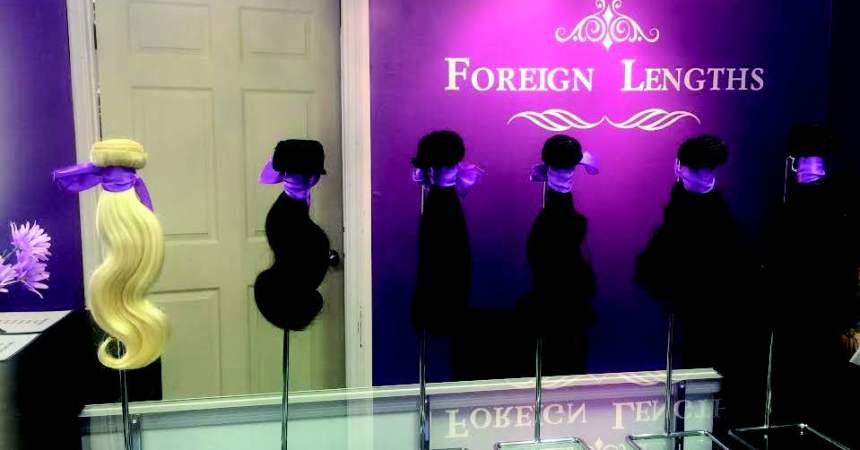
Blacks contribute big to hair business, despite struggles with ownership

Foreign Lengths, a distributor of 100 percent virgin hair, is one of several hair stores on Tallahassee’s south side.
Photo by Stephanie Chioma Davis
By Stephanie Chioma Davis
Outlook writer
Beauty supply stores in Tallahassee have contributed heavily to help make the hair industry one of the fastest growing businesses in the country. But just who gets an opportunity to set up shop has proven to be a difficult endeavor.
Some existing Tallahassee owners say breaking into the business is almost as tough as joining a fraternity – if not more difficult.
Blacks have had the biggest challenge breaking into the business. That’s not just in Tallahassee, either.
There are more than 9,800 beauty supply businesses nationwide. However, only about 300 of them are Black-owned.
The challenge for Blacks getting into the hair business run so deep that it inspired a documentary by Aron Ranen. It took an unbiased look at the influx of Blacks and Asians.
Devon Robinson, an Atlanta-based hair consultant, is trying to make a difference. Through his company “Beauty Supply” Institute, he has been assisting Blacks on finding ways into the business.
His goal is to “create high-performance beauty supply store employees, managers and owners,” he said in a statement on his website.
As part of figuring out who are qualified for the business, Robinson’s company conducts a rigorous analysis to decide whether a new owner could potentially perform at optimum at a low cost.
A more common practice used by vendors is to screen newcomers, sometimes trying to detect their financial ability to sustain.
That makes it more difficult for Blacks, who often don’t have the financial resources, Robinson said.
But then there is the issue of getting to the head of the line.
“They have the supplies the customers want,” said Robinson. “They sell it to (Blacks) at higher prices or they deliver the products late to the Black-owned stores.”
Lawrence McGriff got his start in the business six years ago, plunking down a huge amount of cash to open the doors. Today he has six stores around Florida, including one on Tallahassee’s south side.
Without having the kind of cash that McGriff had, some owners start their businesses on credit accounts. McGriff hinted that there are some disparities in the start-up process, especially when it comes to Blacks.
“They make Blacks pay for their hair up front,” said McGriff, who owns All-N-One hair supply store on Tallahassee’s south side. “But with Koreans, they give them the hair and make them pay for it over a lengthy amount of time.”
Some vendors have gone as far as to establish territories. That means vendors will not sell the same quality of hair to shops that are within a five mile radius of each other.
That trend apparently isn’t hard and fast in Tallahassee, though. For example, Eve’s Beauty Supply, Cali’s Beauty Supply and Q&Q Mart are all within five miles of each other.
It is widely believed that Blacks purchase most of the hair sold by vendors,said Tomika Hughes, that should be enough reason for Blacks to have an easier path to getting into the business. Hughes is co-owner of First Choice Beauty Supply in Mobile, Ala.
“If we cannot sell hair to my people, then who can,” Hughes said rhetorically. “We are the ones that wear it, we know more about it and we should not just be working at the front of the store. We should be owning the business.”







